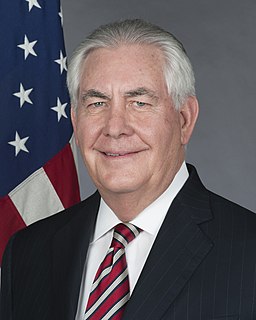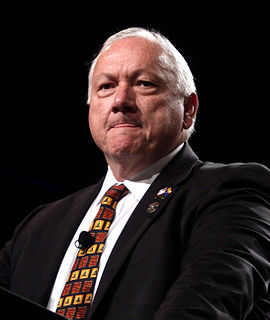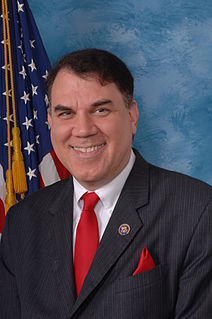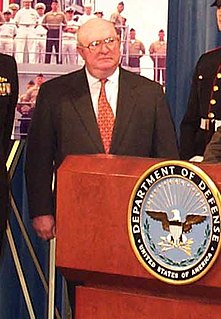A Quote by Colin Powell
The burden is on Saddam Hussein. And our policy, our national policy - not the UN policy but our national policy - is that the regime should be changed until such time as he demonstrates that it is not necessary to change the regime because the regime has changed itself.
Related Quotes
We now believe it is appropriate for Saddam Hussein to be forced to change, either by the threat of war, and therefore that compels him to cooperate. If he cooperates, then the basis of changed regime policy has shifted because his regime has, in fact, changed its policy to one of cooperation. So if he cooperates, then that is different than if he does not cooperate.
Regime change has been an American policy under the Clinton administration, and it is the current policy. I support the policy. But regime change in and of itself is not sufficient justification for going to war--particularly unilaterally--unless regime change is the only way to disarm Iraq of the weapons of mass destruction pursuant to the United Nations resolution.
It remains our policy to change the regime until such time as the regime changes itself. So far, we cannot be sure that he is cooperating or he [Saddam Hussein] is acting in a way that could give us comfort, or should give the international community comfort, that he is giving up his weapons of mass destruction. He continues to give us statements that suggest he is not in possession of weapons of mass destruction when we know he is.
In fact, five years ago, after Saddam ejected the UN inspectors, John McCain and I gave up on containment and introduced the Iraqi Liberation Act, which, when it became law, made a change of regime in Baghdad official US policy. You might therefore say that, when it comes to Iraq, President Bush is just enforcing the McCain-Lieberman policy.
It's important to understand the policy of the U.S. towards North Korea is to deny North Korea possession of a nuclear weapon and the ability to deliver that weapon. Our strategy has been to undertake this peaceful pressure campaign we call it enabled by the four no's.The four no's being that we do not seek regime change, a regime collapse, an accelerated reunification of the peninsula, and we do not seek a reason to send our forces north of the demilitarized zone.
Even before September 11, there was a debate in the administration about whether or not military force should be used to oust Saddam Hussein. You're not going to find one person in the top echelons of the foreign policy and national security establishment in the U.S. government who's going to say that Saddam Hussein should not be out of power.
The fact that some former national security officials challenge the policy wisdom of the order, while other national security officials - most notably those of this [Donald Trump's] administration - support it, merely demonstrates that these are policy disputes that the judiciary is both ill-equipped and constitutionally barred from arbitrating.
Both Presidents George Bush and Barack Obama pursued policies of regime change after 9/11 - with Bush removing al-Qaida's safe haven in Afghanistan and the sadistic anti-American dictator Saddam Hussein in Iraq - but Obama took it a step further and disregarded regional stability as a guiding factor for U.S. policy.









































